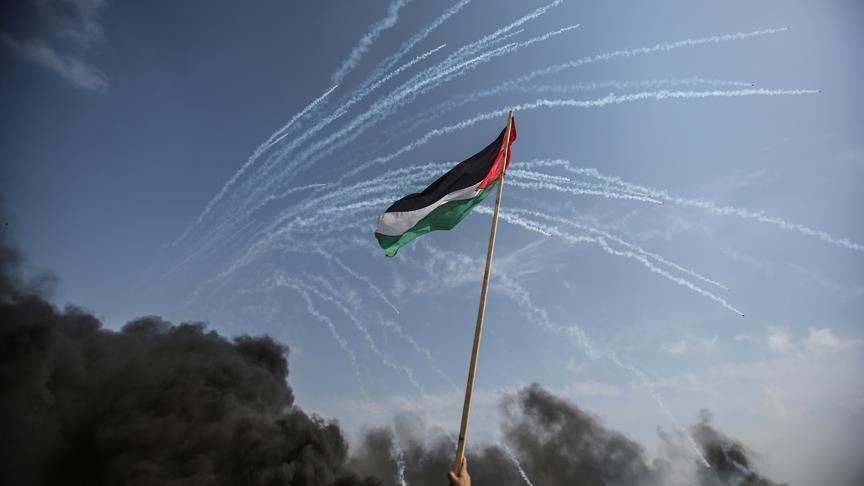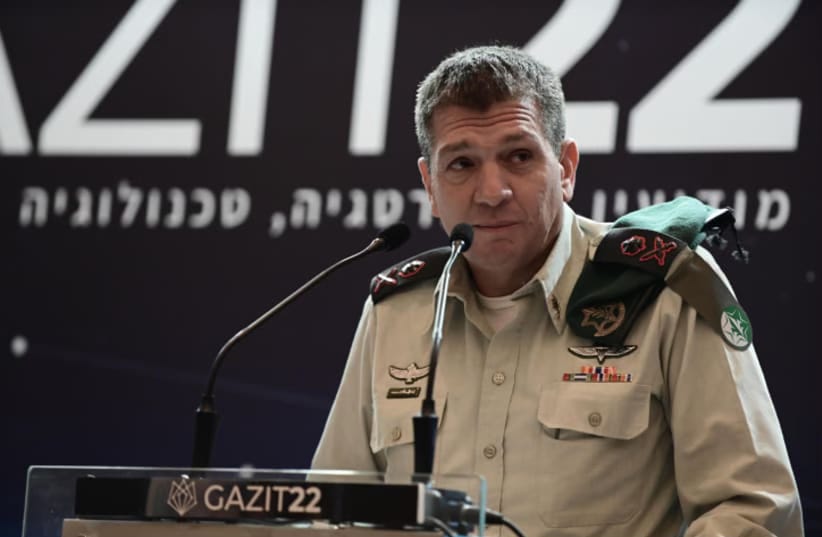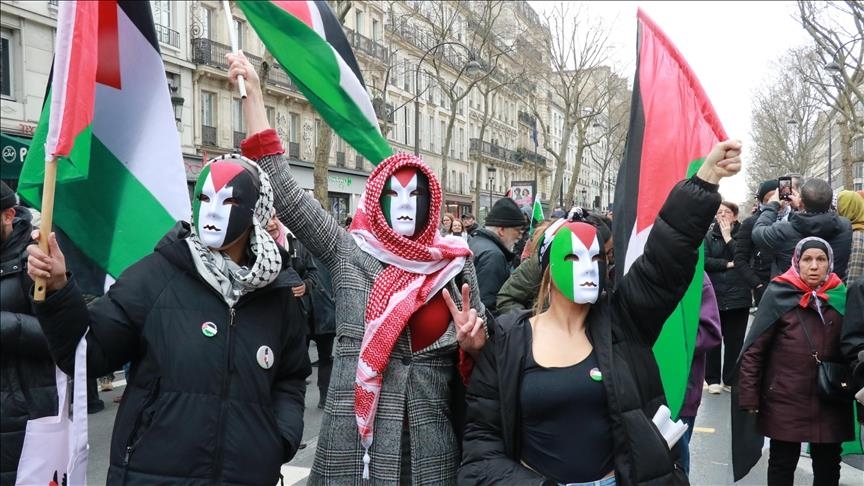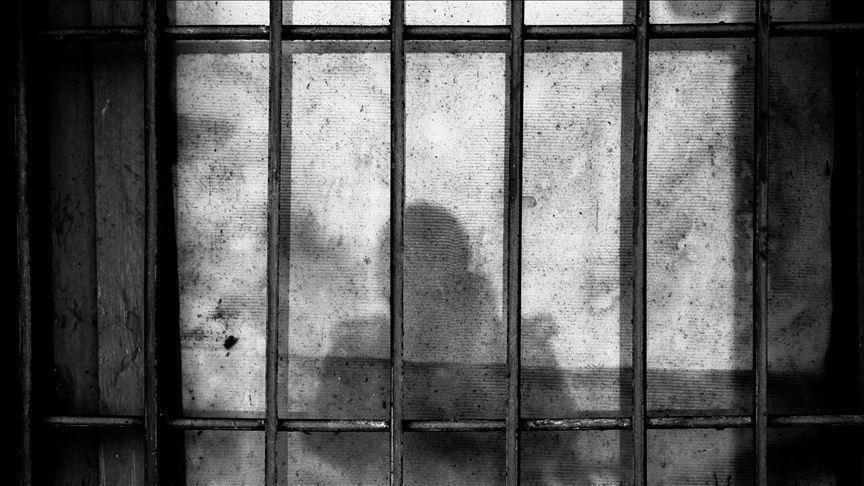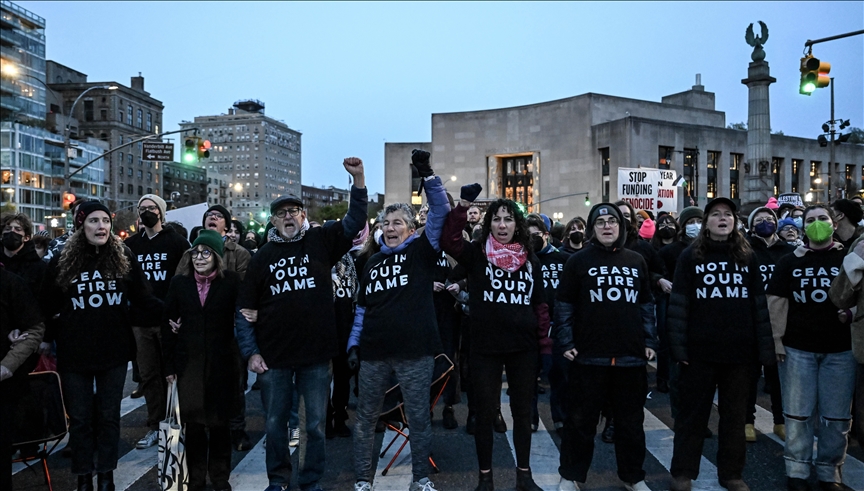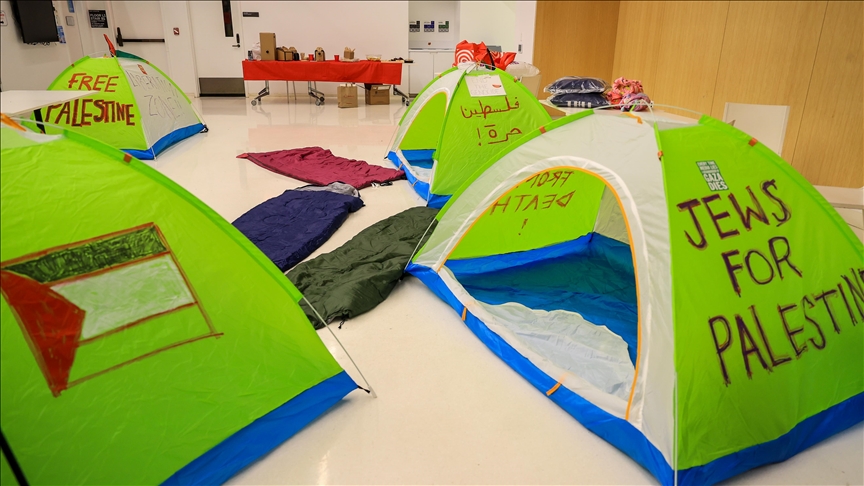Ending Unfettered Military Aid to Israel and Restoring UNRWA Funding

Photograph by Nathaniel St. Clair
Remarks before the US Senate.
M. President,
The Senate will soon vote on a $95 billion supplemental spending package. $95 billion. That’s a lot of money – especially at a time when many Americans are unable to afford their rent or pay their mortgages, pay their bills, afford healthcare, are struggling with student debt or many other needs. $95 billion. That’s a lot of money.
All told, this package includes tens of billions in additional military spending and major policy changes, many of which are controversial. Many of which are disagreed with by the American people. Yet, unlike the House of Representatives, the Senate will not have the opportunity to hold separate votes on the various components of this bill.
I have heard from many of my Democratic colleagues – and I agree – who talk about the dysfunctionality taking place in the House of Representatives. In fact, I don’t know if we’re quite sure who the Speaker of the House will be in a couple of weeks, or whether the extreme, extreme right-wing is going to get rid of Mr. Johnson.
But what we can say about the House is that they at least gave their members the opportunity to vote Yes or No on funding for Ukraine, Yes or No on aid to Israel, Yes or No on TikTok, Yes or No on aid to Asian countries. That is more than can be said for the U.S. Senate right now. And I remind my colleagues that this is supposedly the “greatest deliberative body in the world.” Except we don’t have many deliberations around here. We’ve got one bill, up or down.
M. President, we need to have a serious debate on these issues. I think the American people want us to have a serious debate on these issues. And that is why I am trying my best to secure amendment votes which, in my view, will significantly improve this bill.
As it happens, I strongly support the humanitarian aid included in this bill, which will save many thousands of lives in Gaza, Sudan, Ukraine, and many other places. I strongly support it. I strongly support getting Ukraine the military aid it needs to defend itself against Putin’s imperialist war. I support the Iron Dome to protect Israeli civilians from missile attacks.
But let me be very clear: I strongly support ending the provision which will give $8.9 billion in unfettered offensive military aid to the extremist Israeli government – a government led by Prime Minister Netanyahu, who is continuing his unprecedented assault against the Palestinian people.
I also strongly oppose language in this legislation that would prohibit funding for UNRWA, the UN organization that is the backbone of the humanitarian relief operation in Gaza and the only organization that experts say has the capability to provide the humanitarian aid that is desperately needed there.
And I have filed two amendments to address these issues. These amendments would not touch funding for the Iron Dome and other purely defensive systems to protect Israel against incoming missiles.
M. President, as we all know, Hamas – a terrorist organization – began this war with a horrific attack on Israel that killed 1,200 innocent men, women, and children and took more than 230 captives, some of whom remain today in captivity.
As I have said many times, Israel has and had the absolute right to defend themselves against this terrorist attack. But Israel did not and does not have the right to go to war against the entire Palestinian people, which is exactly what it is doing.
M. President, regarding offensive military aid to Israel, what we will be voting on is pretty simple.
First: has Netanyahu and his government violated U.S. and international law in Gaza – which, if he has, should automatically result in the cessation of all U.S. military aid to Israel? That is a pretty simple question.
Second, and even more importantly: as U.S. taxpayers, do we want to be complicit in Netanyahu’s unprecedented and savage military campaign against the Palestinian people? Do we want to continue providing the weapons and the military aid that is causing this massive destruction? Do we want that war in Gaza to be not only Israel’s war, but America’s war?
On the first question, the legal issue, the answer is clear: Netanyahu and his extremist government are clearly in violation of U.S. and international law and, because of that, should no longer receive U.S. military aid.
International law requires that warring parties facilitate rapid and unimpeded passage of humanitarian relief for civilians in need. That’s international law. Israel has clearly not done that. Only in the last several weeks, after pressure from President Biden, has aid access begun to improve somewhat, though it is still grossly insufficient given the scale of the humanitarian catastrophe.
Maybe more importantly, U.S. law on this subject is extremely clear. There is no ambiguity. The Foreign Assistance Act says that no U.S. security assistance may be provided to any country that “prohibits or otherwise restricts, directly or indirectly, the transport or delivery of United States humanitarian assistance.” That is the law.
Israel is clearly in violation of this law. For six months, it has severely limited the amount of humanitarian aid entering Gaza. The result has been a catastrophic humanitarian disaster with hundreds of thousands of children facing malnutrition and starvation.
Israel’s violation of this law is not in debate. It is a reality repeatedly confirmed, every day, by numerous humanitarian organizations. Israeli leaders themselves admit it.
M. President at the start of this war, the Israeli defense minister declared a total siege on Gaza, saying, this is the Israeli Defense Minister, “we are fighting human animals, and we are acting accordingly. There will be no electricity, no food, no fuel. Everything is closed.” And they kept their word on that.
In January, Netanyahu himself said that Israel is only allowing in the absolute minimum amount of aid.
For months, thousands of trucks carrying life-saving supplies have sat just miles away from starving children – trucks with food miles away from children who are starving. And Israel has kept these trucks from reaching people in desperate need.
Israel’s blockade pushed the United States to extreme measures, including air-dropping supplies and the construction of an emergency pier, in order to get food to starving people. The President and the United States did the right thing – children are starving, and we are trying to air drop aid and build a pier. In other words, we’re now in the absurd situation where Israel is using U.S. military assistance to block the delivery of U.S. humanitarian aid to Palestinians.
If that is not crazy, I do not know what is. But it is also a clear violation of U.S. law.
Given this reality, we shouldn’t today even be having this debate. It’s illegal to continue current military aid to Israel, let alone send another $9 billion with no strings attached.
M. President, let me take a moment to describe what is happening in Gaza right now, to further explain why these amendments are absolutely necessary and why we must end U.S. complicity in Netanyahu’s war in Gaza.
M. President, more than 34,000 Palestinians have been killed and 77,000 wounded since this war began – seventy percent of whom are women and children. Seventy percent of whom are women and children. That means five percent of the 2.2 million residents of Gaza have been killed or wounded in six-and-a-half months.
Five percent of the entire population in six-and-a-half months have been killed or wounded. That is a staggering, rather unbelievable number.
19,000 children in Gaza are now orphans. 19,000 children are orphans having lost their parents in this war. And I might add, for the children of Gaza the psychic damage that has been done to them will never cease in their lives. They have witnessed – little kids, Gaza is a young community a lot of children – they have witnessed unbelievable carnage, destruction of houses. They have experienced hunger, thirst. They have been thrown out of their homes. What is being done to the children – many hundreds of thousands of children –is unforgivable.
And the killing has not stopped. Over the weekend, 139 Palestinians were killed and 251 injured. Of these, 29 were killed in and around Rafah, including 20 children and six women, one of whom was pregnant.
M. President, roughly 1.7 million people – over 75 percent of the population – have been driven from their homes in Gaza. Satellite data shows that 62 percent of homes in Gaza have been either damaged or destroyed, including 221,000 housing units that have been completely destroyed. 221,000 housing units completely destroyed. That’s more than one million people made homeless by Israeli bombing.
M. President, it’s not only housing. It is Gaza’s entire civilian infrastructure that has been devastated. In Gaza today there is no electricity, apart from generators or solar power, and most roads are badly damaged. More than half of the water and sanitation systems are out of commission. Clean drinking water is severely limited, and sewage is running through the streets, spreading disease.
M. President, Israel has not only destroyed the housing stock in Gaza, not only destroyed the infrastructure, they have systematically destroyed the health care system in Gaza. 26 out of 37 hospitals are completely out of service in a country that now has tens and tens of thousands of people who are now sick and wounded. Eleven hospitals are partially functioning, but they are overwhelmed by many, many people who are sick and injured. And they are all short on medical supplies. Doctors have had to perform countless surgeries without anesthesia or antibiotics. Only three hospitals are now providing maternal care in Gaza, where 180 women are giving birth every day. Overall, 84 percent of health facilities have been damaged or destroyed in Gaza, and more than 400 health care workers have been killed.
But it is not only housing that has been destroyed, not only the infrastructure, not only the health care system. M. President, the education system has collapsed, with 56 schools destroyed and 219 damaged. The last of Gaza’s universities was demolished in January. Some 625,000 students now have no access to education.
M. President, I really do not understand what the military utility of destroying a university is.
M. President, above and beyond the destruction of homes; the destruction of the infrastructure; the destruction of the health care system; the destruction of schools, universities, and the educational system; unbelievably, there is something even worse now taking place in Gaza: and that is that more than one million Palestinians, including hundreds of thousands of children, face starvation. People in Gaza are foraging for leaves, they are eating animal feed, or surviving off the occasional aid package. At least 28 children have already died of malnutrition and dehydration. And the real number is likely much higher, but without sustained humanitarian access throughout Gaza, it’s impossible to know. Recently, USAID Administrator Samantha Power said that famine was already present in northern Gaza.
Without food, clean water, sanitation, or sufficient healthcare, hundreds of thousands of people are at severe risk from dehydration, infection, and easily preventable diseases.
M. President, I keep hearing discussion from the pundits and the experts about the “day after in Gaza,” when the war is over – but what kind of day after can there be amidst this incredible destruction? Gaza today can barely sustain human life.
M. President, Hamas started this war. And that is true. But this war stopped being about defending Israel a long time ago. What is going on now is the destruction of the very fabric of Palestinian life.
It is impossible to look at these facts and not conclude that the Israeli government’s policy has been, quite deliberately, to make Gaza uninhabitable for Palestinians.
And, clearly, there are powerful voices in Israel’s extreme, right-wing government who have been quite open about their desire to drive the Palestinian people out of both Gaza and the West Bank.
This is not the Israel of Golda Meir. Netanyahu’s government is beholden to outright racists and religious fanatics who believe they have exclusive right to dominate the land.
M. President, that is why we must end our complicity in this terrible war. That is why we should support the amendment I am offering to end unfettered military aid to the Netanyahu’s war machine.
Let’s be clear: cutting military aid to Netanyahu’s government is not just my view. It’s what American people believe and are demanding.
The American people, in fact, are fed up with Netanyahu and his war.
They do not want to see their taxpayer dollars support the slaughter of innocent civilians and the starvation of children. A recent Gallup poll showed that just 36% of Americans approve of Israel’s military action, with 55% disapproving. A Quinnipiac poll showed that U.S. voters oppose sending more military aid to Israel by 52% to 39. An earlier YouGov poll also showed that 52% of Americans said that the United States should stop sending weapons to Israel until it stops its attacks in Gaza.
Maybe, and here’s a very radical idea, maybe it’s time for Congress to listen to the American people. And I would urge strong support for my amendment.
M. President, my second amendment would remove the ban on funding for UNRWA, a UN organization with 30,000 employees that is delivering essential humanitarian aid in Gaza and supporting basic services in other neighboring countries, including Jordan. Millions of people rely on those services.
Israel has said that 12 UNRWA employees were involved in the October 7th terrorist attack.
These are serious charges – obviously any involvement with Hamas by UNRWA employees is unacceptable. That is why every year UNRWA provides Israel with a list of its staff and goes to great lengths to cooperate with Israeli authorities. UNRWA learned about Israel’s accusations from the media, and immediately fired the accused employees, while the UN launched an investigation.
Thus far, Israel has refused to cooperate with the UN investigation. I should add, importantly, that most donors have restored funding to UNRWA and are satisfied by the agency’s protocols to ensure independence from Hamas.
The U.S. National Intelligence Council, meanwhile, said that Israel’s claims were plausible but could not be confirmed, and noted that Israel has tried to undermine UNRWA for years. In the last six months, Israel has harassed UNRWA employees, blocked shipments of supplies including medicines, frozen its bank accounts, and killed 181 UN staff.
M. President, UNRWA plays a critical role both in Gaza and across the region. Whatever the investigation shows in the end, it is my view that you don’t deny humanitarian aid to millions of people because of the alleged actions of twelve UNRWA employees out of a workforce of 30,000.
And by the way, Mr. President, when we talk about investigations, maybe, just maybe, we should not just be talking about UNRWA. Maybe we should also investigate what’s going on in the West Bank. Last weekend, after an Israeli teenager was killed, large groups of armed Israeli settlers, vigilantes, rampaged through seventeen villages, shooting dozens of people and burning homes. Israeli soldiers watched the attacks unfold, doing nothing to stop them. No arrests have been announced. Maybe we need an investigation there as well.
This past weekend, the Israeli military killed 14 more Palestinians in the West Bank. An ambulance driver was shot and killed as he tried to recover people wounded in another violent attack by Israeli settlers.
Since October 7th, Israeli soldiers and settlers have killed more than 470 Palestinians in the West Bank, including more than 100 children.
But for some reason, I don’t know why, I just don’t hear my colleagues calling for an investigation of that.
M. President, we are in a critical moment. Not just in terms of what is happening in Gaza, but in many ways what is happening right here in America and what is happening here in the U.S. Senate. Given the fact that a majority of the American people now want to stop funding for Netanyahu’s war machine, I find it incomprehensible that we are not going to be able to vote on that issue. I find it outrageous that, at a time when Netanyahu’s government has clearly broken the law, members of this Congress, members of the Senate are not going to be able to vote as to whether or not they want to continue providing billions more of unfettered military aid to Netanyahu’s war machine.
So, M. President, I would hope that we will have the decency to allow a little bit of democracy here in the United States Senate. I would hope that we allow the members to vote on some of these very, very important issues. And I certainly hope that we will pass these amendments.
Thank you and I yield.
Sanders’ remarks before the US senate, as prepared for delivery, can be watched here.
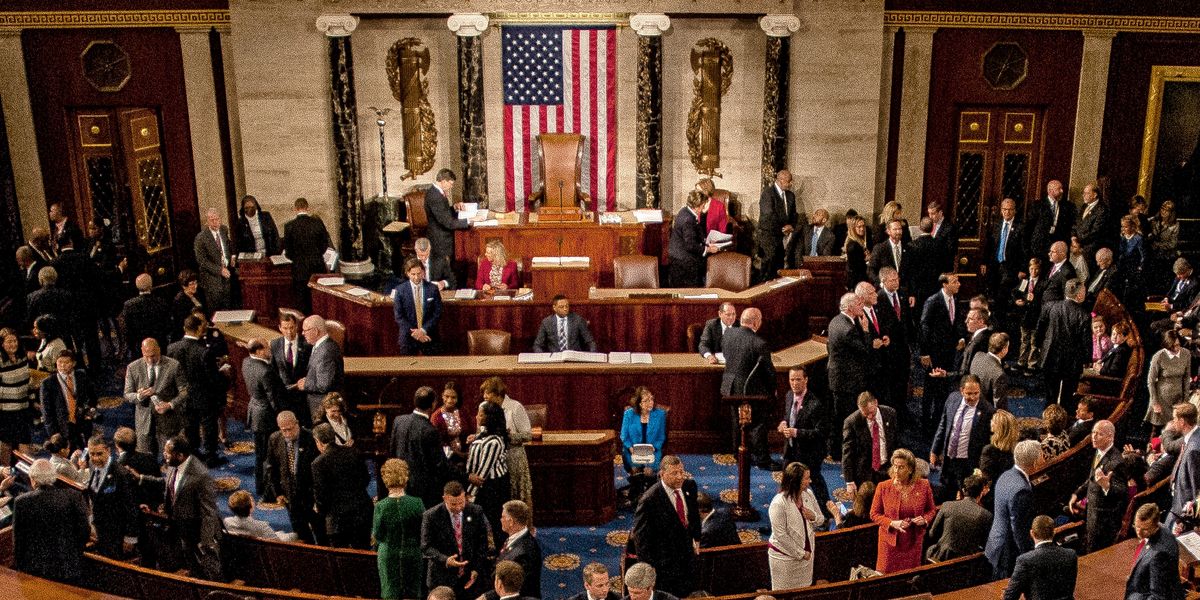
Half the members who signed a letter to Biden in the aftermath of aid worker killings voted for the package anyway
BLAISE MALLEY
APR 24, 2024
The Senate approved the national security supplemental on Tuesday night, by a vote of 75-17.
The legislation combined the four bills that were approved by the House over the weekend. After months of pushing the Biden administration to do more to pressure Israel to change its conduct in its war in Gaza, Democrats in Congress ultimately approved $26 billion in aid for Israel, including approximately $9 billion in global humanitarian aid (how much would go to Gaza, to be determined).
In the Senate, Sen. Bernie Sanders (I-VT.) tried to introduce two amendments — one that would remove all offensive military aid for Israel and another to restore U.S. funding for UNRWA. "What we are doing today is aiding and abetting the destruction of the Palestinian people," he said on the Senate floor Tuesday night.
No Democrats, including some who have raised concerns about Israel’s war, supported Sanders’s effort, saying that they wanted the package to move forward without delay.
In the lead-up to the votes, pushback was more prevalent in the House. Perhaps most notably, on April 5, 39 voting congressional Democrats circulated a letter that urged President Joe Biden to stop sending offensive arms to Israel until an investigation into the strike that killed seven World Central Kitchen staffers was completed.
In addition, the members also urged Biden “to withhold these transfers if Israel fails to sufficiently mitigate harm to innocent civilians in Gaza, including aid workers, and if it fails to facilitate — or arbitrarily denies or restricts — the transport and delivery of humanitarian aid into Gaza.”
On Saturday, 37 Democrats (along with 21 Republicans) voted against the Israel aid bill — a significant total given the history of bipartisan support for Israel in Congress. But the large majority of the caucus, 173 in total, voted to advance it (3 Democrats did not vote).
Of those in support, 20 of the members had signed that letter to Biden earlier this month.
Securing another tranche of aid for Ukraine has been a long-term policy priority for the party, and some Democrats may have been willing to swallow more aid for Israel as a price for accomplishing that goal. But the vote over the weekend gave Democrats an opportunity to follow through on their rhetoric and vote against sending Israel more military aid without compromising any other piece of legislation.
But many Democrats nonetheless retreated from the line they had set earlier this month. Signs of a shift in rhetoric from some of these members came in the aftermath of Iran’s strikes on Israel on April 13.
“Iran is a terrorist nation. They have just launched a disproportionate terrorist attack against our ally Israel. The free world and the United States will stand against this terrorist nation and the tyranny that it promotes,” said Rep. Sheila Jackson Lee (D-Texas) on X on the night of the attacks. “We must pass Biden’s supplemental appropriation funding now that covers Israel, Ukraine, and Gaza among others.” This followed her signing of the April 5 letter urging Biden to hold aid.
Others stayed noticeably quiet following the exchange of attacks between Iran and Israel, but their calculus on aiding Israel clearly changed between April 5 and last weekend.
“I will always support our allies against enemy attacks — especially with potential nuclear threats. Iran’s attacks against Israel necessitated that we approve the emergency aid package without delay,” Rep. Alma Adams (D-N.C) told RS on Tuesday. “I additionally chose to do so because it provides for over $9 billion in humanitarian aid. I trust that President Biden will ensure this aid is dispensed to those most severely impacted by this conflict.”
Rep. Jahana Hayes (D-Conn.), told RS that the Iran attacks changed her calculus as well. “Earlier this month, I signed a letter asking President Biden to withhold offensive weapons until there was an investigation into the airstrike that resulted in the death of seven World Central Kitchen humanitarian aid workers. I still maintain that any funding the United States provides to our allies must be used in accordance with international law,” she said.
“The situation changed when Iran launched an attack against Israel and further escalated tensions in the region," she added. "Providing aid to our allies around the world, including Israel, is of vital importance to our national security. This does not negate the need for assurances of how aid will be used. The national security supplemental I voted for last week ensures Israel has the resources to combat Hamas and provides crucial humanitarian aid to vulnerable people around the world, including the civilians in Gaza. We can and must continue to do both."
Eight of the 20 signatories who eventually supported the bill have not issued public statements about their votes, including Reps. Jackson Lee, Adams, and Reps. Rosa DeLauro (D-Conn.), Nanette Barragan (D-Calif.), Zoe Lofgren (D-Calif.), Tony Cardenas (D-Calif.), and Robert Garcia (D-Calif.)
Four others, including Pelosi, as well as Reps. Anna Eshoo (D-Calif.), Sylvia Garcia (D-Texas), and Hayes (D-Conn.) released statements celebrating the passage of the series of national security bills without explicitly explaining or justifying their positions on Israel aid. Pelosi’s office published a transcript of her floor speech on Ukraine aid but did not mention Israel.
“Speaker Pelosi has a long record of strong support for Israel and its right to defend itself. Speaker Pelosi signed the April 5 letter to call for a pause on offensive weapons transfers until there was an independent investigation into the attack on the World Central Kitchen heroes, steps the administration has taken and is taking,” a spokesman for Pelosi told RS, explaining her vote. “Speaker Pelosi’s position is fully consistent with her vote in favor of the Israel Security Supplemental Appropriations Act.”
Three other Democrats — Reps. Betty McCollum (D-Minn.), Madeleine Dean (D-Pa.), and Kevin Mullin (D-Calif.) issued short statements emphasizing the $9 billion in humanitarian aid, some of which will go to Gaza — but not mentioning or explaining their support for the military assistance to Israel.
Besides Adams, Hayes, and Pelosi, none of the other members who did not clearly state their rationale for the vote responded to requests for comment.
Avoiding an explanation of controversial votes is nothing new for Democrats.
“The GOP mentioned the country in the title of its press release and sixteen times in its summary of the bill. But the House and Senate Democrats’ press releases don’t mention Israel at all,” Stephen Semler noted in Jacobin when Congress passed a $1.2 trillion funding bill that included almost $4 billion in military assistance for Israel and cut off all funding for UNRWA, the most important supplier of humanitarian aid in Gaza. “Clearly, Democratic elected officials were afraid to cop to the contents of the bill.”
The other six members who voted for the aid package explained their decisions more clearly to the public.
Reps. Jan Schakowsky (D-Ill.) and Sara Jacobs (D-Calif.) explicitly criticized the inclusion of funds that Israel could use for offensive weapons, but said that the defensive aid for Israel and the humanitarian aid present in the bill were necessary.
“While I have deep concerns about the bill that includes additional security assistance to Israel, the funding in this bill is urgently needed to address the worsening humanitarian crisis in Gaza,” said Schakowsky. "I am concerned by the inclusion of $3.5 billion in funding for Israel that could be used to obtain offensive weapons. While this funding will not be disbursed to Israel for several years, I reiterate my calls for the U.S. to halt all offensive weapons transfers to Israel until and unless it can be confirmed that U.S. weapons are being used in accordance with domestic and international law and that the Israeli government is not impeding the entry of U.S. humanitarian aid into Gaza.”
“While I’m deeply concerned about further military assistance to Israel, I couldn’t in good conscience vote against this lifesaving humanitarian assistance when millions of people around the world are suffering,” added Jacobs.
Reps. Jared Huffman (D-Calif.), Paul Tonko (D-N.Y.), Veronica Escobar (D-N.Y.), and Melanie Stansbury (D-N.M.) all supported the measure but urged Biden to keep pressure on Benjamin Netanyahu to follow international law and protect civilians during the war. Stansbury paired her statement on the supplemental’s package with a letter she wrote to Biden saying that she understands “that the funding provided in the supplemental is defensive in nature and will not be used to support offensive weapons in Gaza.” The legislation earmarks approximately $3.5 billion for buying “advanced weapons systems.”
Escobar said that her “support for the Israel package comes with [her] continued calls on the administration to use its leverage with Israel to allow more life-saving humanitarian aid to enter Gaza.”
Democrats who opposed the measure on Saturday made the case that taking the rare opportunity to register clear, widespread opposition to weapons packages like this one is how opponents of funding Israel’s war can provide Biden with the necessary leverage to push Netanyahu.
“I hope this vote will show the world that there is a really significant segment of the United States that doesn’t want to see expanded and widening wars,” Rep. Greg Casar told the New York Times before the vote.
Following the vote, a group of 19 Democrats who voted against the aid issued a statement stating, in part: “Today is, in many ways, Congress’ first official vote where we can weigh in on the direction of this war. If Congress votes to continue to supply offensive military aid, we make ourselves complicit in this tragedy.”
Blaise Malley is a reporter for Responsible Statecraft. He is a former associate editor at The National Interest and reporter-researcher at The New Republic. His writing has appeared in The New Republic, The American Prospect, The American Conservative, and elsewhere.
